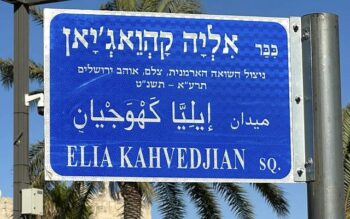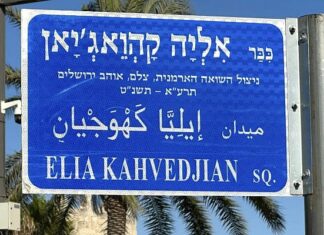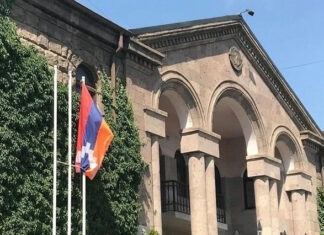WASHINGTON — The Safeguarding the People of Nagorno-Karabakh hearings organized by the Tom Lantos Committee on Human Rights on Capitol Hill last week included Senator Sam Brownback as a speaker. Among other things, he said, “Do we want to see yet another ancient Christian population being driven out of its homeland?”

“120 thousand Christians are strangled, blockaded by Azerbaijan,” he exclaimed in the opening part of his remarks. The former United States Ambassador-at-Large for International Religious Freedom, former governor of Kansas, and former Senator Brownback based his on-record comments on both humanitarian aspects and geopolitical considerations. Refering to the pan-Turkic vision of the recently re-elected Turkish leader Erdogan, he added: “He got this pan-Turkic idea of a corridor and one sliver of land that stands between him, and this Pan-Turkic corridor is Armenia.”

Brownback cited the three incursions into the Republic of Armenia proper the week he was in Armenia for a fact-finding mission earlier this month. Bringing together the millennia-old Christian history and contemporary political affairs, the experienced politician noted that despite all wars and threats, Christian Armenians managed to survive in a challenging environment when all Christian countries of the Middle East were knocked out and conquered one by one. “This is another Christian population that is going to be driven out. If we don’t take some policy moves, Azerbaijan is going to squeeze the place and force people to leave,” added the ambassador.
Last time in Armenia, Ambassador Brownback visited the resort town of Jermuk, attacked by the Azeri troops in September. “You could see the Azeri forces on the other fill, and the ability for them to lob artillery into that town at any time is right there. It really reminded me of Sarajevo,” added Brownback drawing parallels between the situation in Armenia and the former Yugoslavia of the 1990s.
Rep. Jim McGovern, the co-chair of Tom Lantos commission, asked: “What is the pro-human rights response here?” and then answered his question: civilian protection, which means taking all actions we can to prevent further escalation of tensions, should be rendered to Artsakh. All participants agreed that the US military assistance to Azerbaijan should be halted, and Section 907 of the Freedom Support Act, which prohibits US direct assistance to Azerbaijan, needs to be restored, especially if the blockade of Artsakh is not removed.
Amb. Brownback reminded that Azerbaijan is using American weaponry received from the United States. There are American components used in the Turkish technologies that are used in the attacks against Armenia, added Michael Rubin, a senior fellow at the American Enterprise Institute. He compared Aliyev’s rhetoric about Yerevan being a historical Azerbaijani city to the aggressive rhetoric of Saddam Hussein that preceded Saddam’s attack on Kuwait in 1990. “We need to nip this in the bud. We cannot assume this is a rhetorical excess, the way we did with Saddam Hussein in 1990, before his push in Kuwait,” summarized Rubin.










